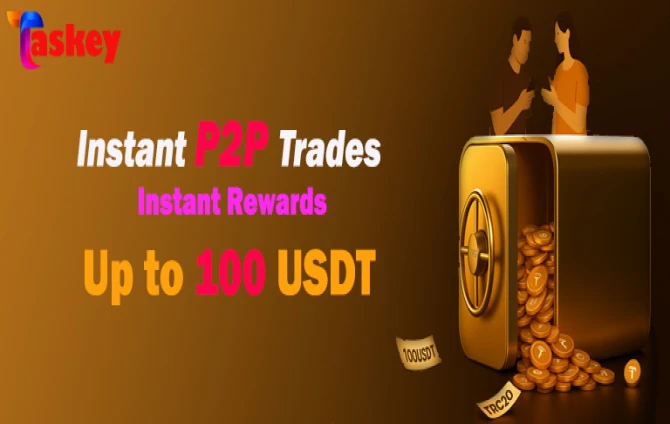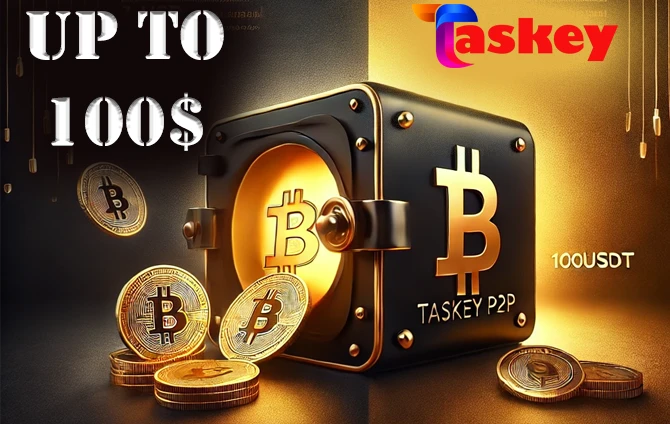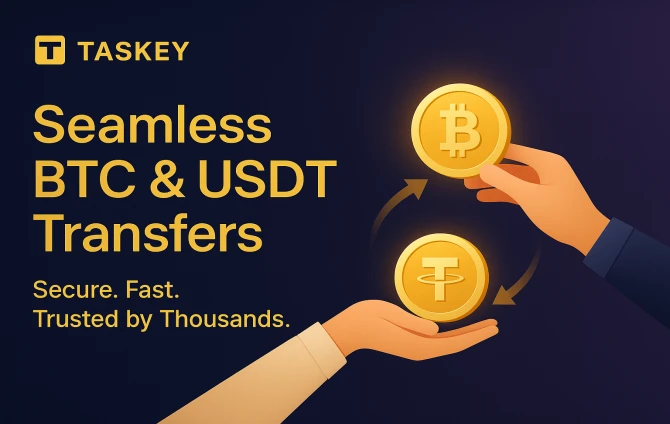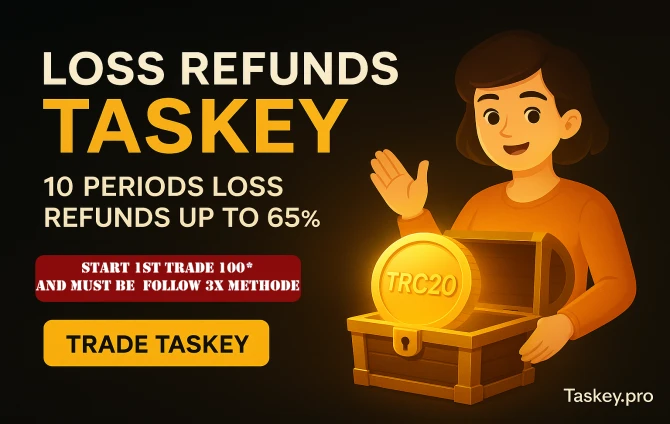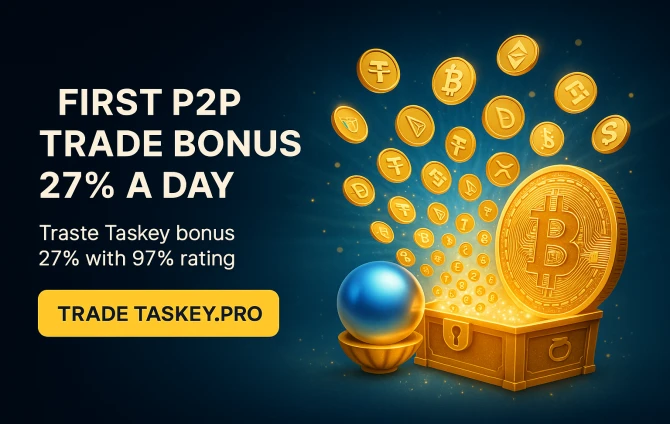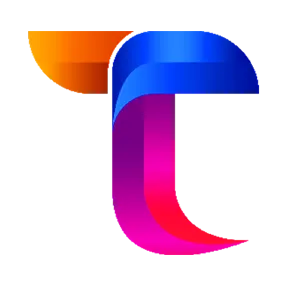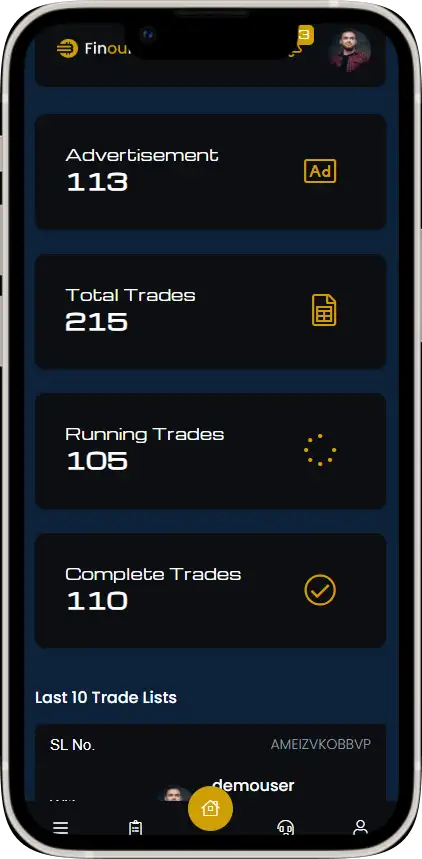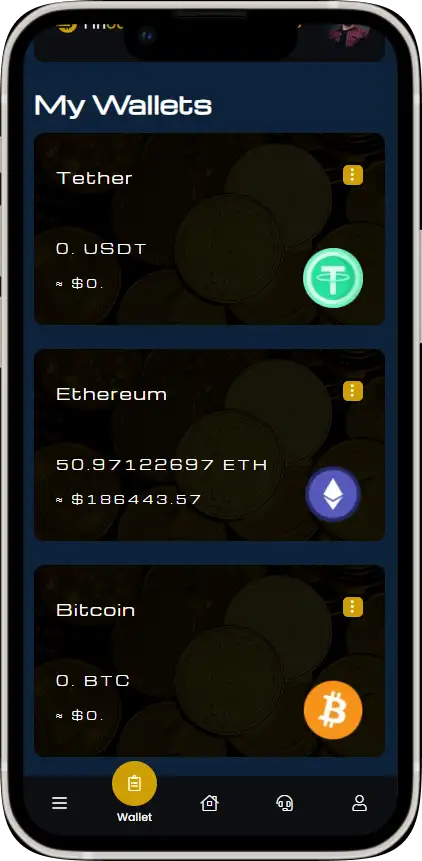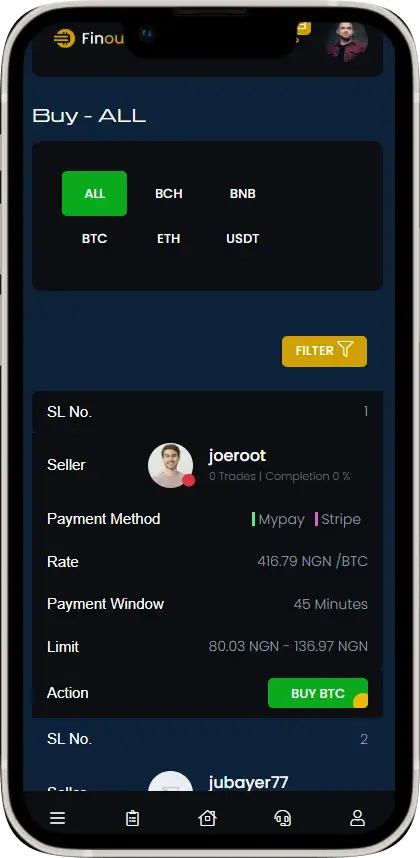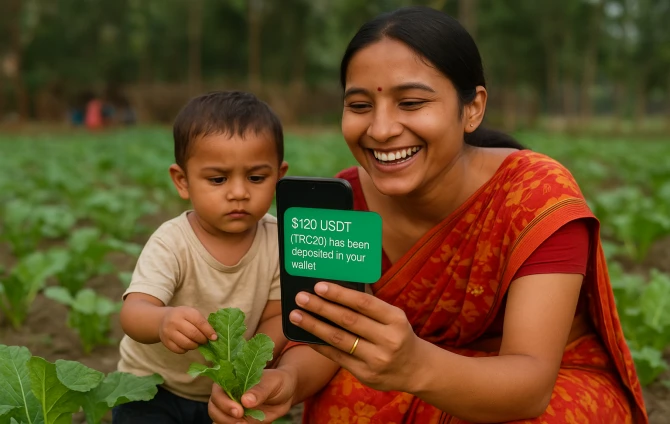
With Soil on Her Hands and a Phone in Her Palm: How $120 in Crypto Changed a Mother’s Life
The Field That Feeds
At the crack of dawn, sunlight filtered through the palm trees that lined the small vegetable plot on the outskirts of a quiet village in northern Bangladesh. A woman named Salma Khatun, dressed in a worn yet vibrant saree, stooped low over a row of leafy green spinach. Beside her sat her 2-year-old son, Rafi, playing with a piece of torn jute rope and occasionally picking leaves with tiny fingers.
Salma had no hired help. The soil was her domain, and her child her only co-worker. Her husband, Jalil Mia, worked part-time in the town’s bazaar. Their income was meager, barely enough to support food, schooling, and medicine. Yet, Salma’s spirit never wavered. She had one tool most other women in the area didn’t have — a smartphone.
The Call That Planted New Hopes
Two weeks earlier, during one of Jalil’s trips to the town, a relative introduced him to a Bangladeshi man named Anwar, now living in Malaysia. Anwar was looking for small-scale organic vegetable suppliers to send produce to his cousin's food business in Dhaka.
Salma’s name came up.
A WhatsApp call followed.
Anwar:
"Apa, can you supply 30 kg of spinach and 20 kg of red amaranth weekly? I’ll pay through USDT—TRC20. It’s faster and cheaper."
Salma didn’t understand the jargon. But Jalil, having seen videos about crypto on YouTube, nodded confidently. They agreed.
What is TRC20? A Family Learns
That night, Jalil explained what he had learned:
-
TRC20 is a blockchain standard on the TRON network.
-
USDT (Tether) is a stablecoin pegged to the US Dollar.
-
TRC20 transactions are fast, cheap, and borderless.
-
All you need is a crypto wallet (like TronLink or Trust Wallet).
They downloaded the app and learned how to create a wallet, copy the address, and check transaction history.
The First Shipment
On a Wednesday morning, Salma harvested fresh spinach and carefully weighed and bundled it using banana leaves and biodegradable twine. Jalil rented a van to deliver it to a local courier, who had partnered with Anwar’s cousin.
Before noon, Anwar received photos of the packed vegetables.
He replied:
"Nice quality. I’m sending $120 USDT to your wallet now."
The Moment of Change
Back in the vegetable field, Salma was plucking coriander leaves when her phone buzzed.
💬 “$120 USDT (TRC20) has been deposited into your wallet.”
She gasped, showing the phone to her son. Rafi just smiled, still fascinated by the leaves. Salma’s eyes welled up — not because of the money, but because she finally felt seen, valued, and connected.
Word Spreads
That evening, Salma and Jalil shared the news in their community.
-
“Digital Dollar paisi!”
-
“Phone-e taka elo?”
-
“Bhalobashar sobji, now blockchain-e!”
Soon, others in the village started asking questions:
-
“How do you open a wallet?”
-
“Can I also sell sobji to buyers online?”
-
“What if I lose my phone?”
Salma became not just a provider — she became a crypto educator in her village.
The Economic Impact
Within a month:
-
Salma made three deliveries, earning a total of $360 USDT
-
She reinvested $100 to buy a solar irrigation pump
-
Saved $50 for her son’s school enrollment
-
Bought seeds and tools with another $70
-
The remaining $140 stayed safely in her wallet, untouched
No bank. No paperwork. No middleman.
Just work → wallet → wealth.
Empowerment Beyond Money
Salma’s newfound confidence transformed her:
-
She began helping other women in the village set up wallets
-
Conducted small training sessions under a tree
-
Jalil helped men learn the basics of KYC, transaction fees, and network speed
The Bigger Picture
Salma’s story isn’t just hers anymore.
It reflects a revolution in financial inclusion. Through:
-
Peer-to-peer trade
-
Borderless payments
-
Fast digital confirmation
-
Stablecoins like USDT
-
Blockchain technology like TRC20
People in rural areas are now able to build direct relationships with urban or international buyers, skip intermediaries, and receive secure, instant payments.
A Call to Action
If Salma can do it, so can millions of others.
All you need:
-
A smartphone
-
A little learning
-
Trust in a digital future
📌 Final Thoughts
As the sun set on the lush fields, Salma looked at her sleeping son and then at her phone screen, still displaying the transaction history.
It wasn’t just $120. It was the beginning of freedom.
Freedom from dependence, from debt, from delay.
A woman who once sold vegetables for a few hundred taka now earned in digital dollars. With soil on her hands and a phone in her palm, she was planting the seeds of a new financial future — one harvest at a time.
